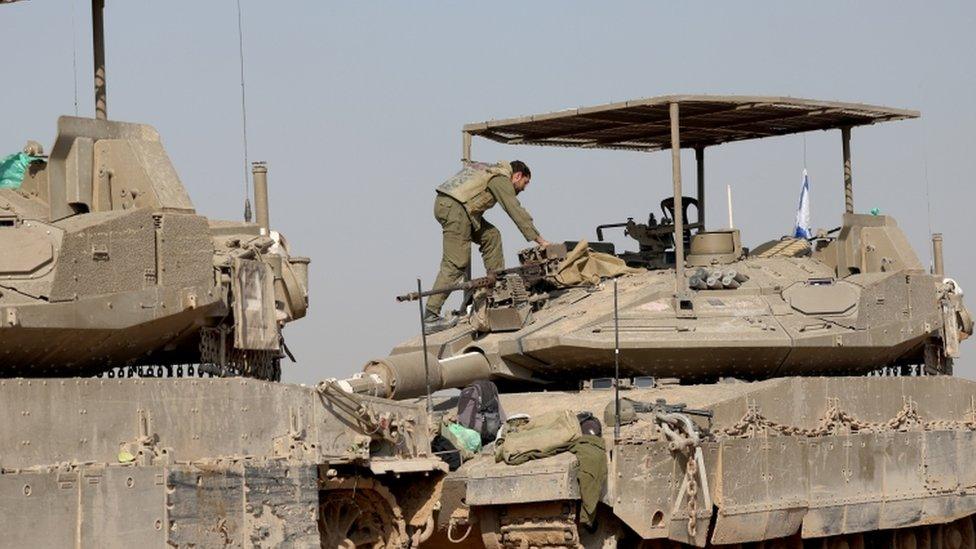Israel and Gaza: Kids in the UK talk about relatives
- Published
- comments
Israel Gaza: The UK children with family in Israel and Gaza
Children with family living in Gaza and Israel have spoken to Newsround about their concerns for the safety of their relatives during the ongoing conflict there.
The origins of the conflict between Israel and Palestinians go back more than 100 years but recent days have seen the largest outbreak of violence in the region for many years.
It began when a Palestinian militant group called Hamas based in Gaza crossed into Israel during a surprise attack, and thousands of rockets were also launched by Hamas towards Israel. Many Israeli civilians and soldiers were killed, and more were injured.
In response, Israel launched air strikes into Gaza, and cut off water and electricity supplies to the area. Many civilian Palestinians in Gaza have been killed or injured.
For children in the UK with relatives and friends in Israel and Gaza it's a worrying time.
Newsround spoke to three children with family members in these areas.
Tal, Taha and Yusuf
Tal, who lives in London, has relatives who live in Israel.
Brothers Taha and Yusuf, who live in Edinburgh, have several family members living in Gaza.
Conflict between Israel and Hamas has not been unusual, but for Tal, she says this time things feel very different.
"At first when I found out there was a war, I was like well 'there's always wars', so it can't be that bad'," but adds that she soon realised things were "more scary and worse" this time.
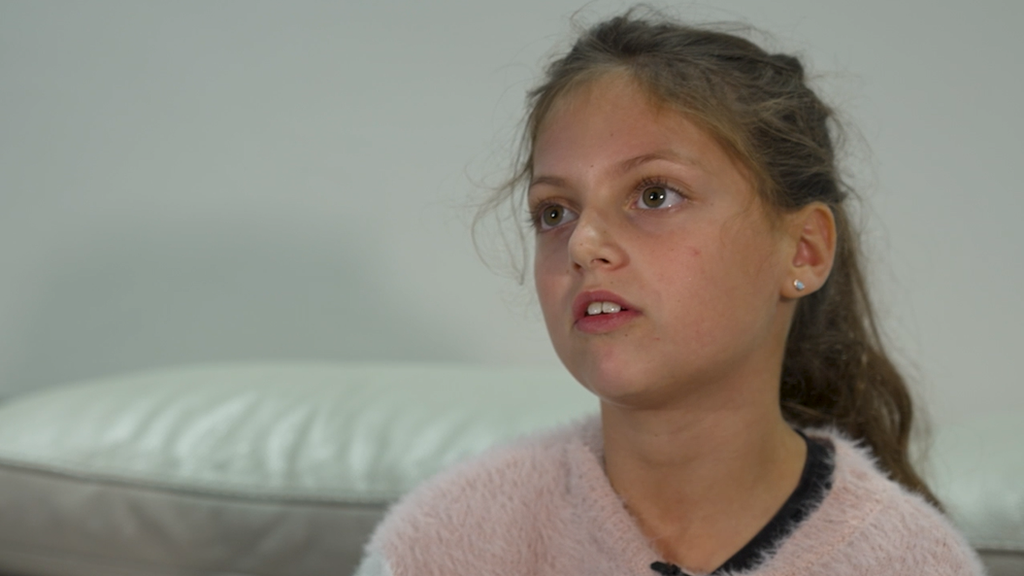
Tal has relatives who live in Israel
Following the surprise attack Hamas also fired rockets at Israel and Tal says that she feels very concerned for family members, explaining that: "They feel very stressed."
Israel's Prime Minister Benjamin Netanyahu has told Israelis they are going into a "long and difficult war" and Tal says "some cousins in my family who live in Israel have been called back to the army."
"I don't want them to get hurt," she added.
Following the escalation in violence, the United Nations (UN) has called for all civilians - people who are not fighting - in both Israel and Gaza to be protected.
What is life like for children in Israel and Gaza?
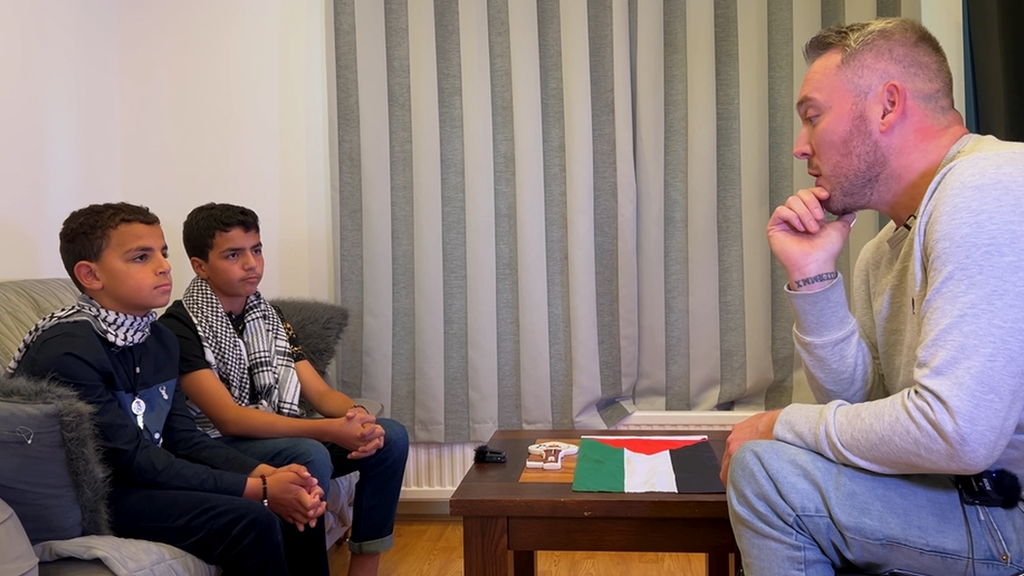
Taha and Yusuf told Martin that they worry about their relatives in Gaza
For Taha and Yusuf their oldest relative living in Gaza is their grandma who is almost 80, whilst the youngest is a newborn baby.
Speaking to Newsround presenter Martin, the brothers say that, despite Israeli air strikes, their parents have managed to hear from relatives in Gaza.
They have also learned that their grandmother's flat in Gaza has been destroyed in the strikes, but at the moment she is ok.
"They have to travel and with the lack of water and food and electricity, the baby and my grandma are both struggling," says Yusuf who adds that "It's scary and worrying because you never know what will happen to them."
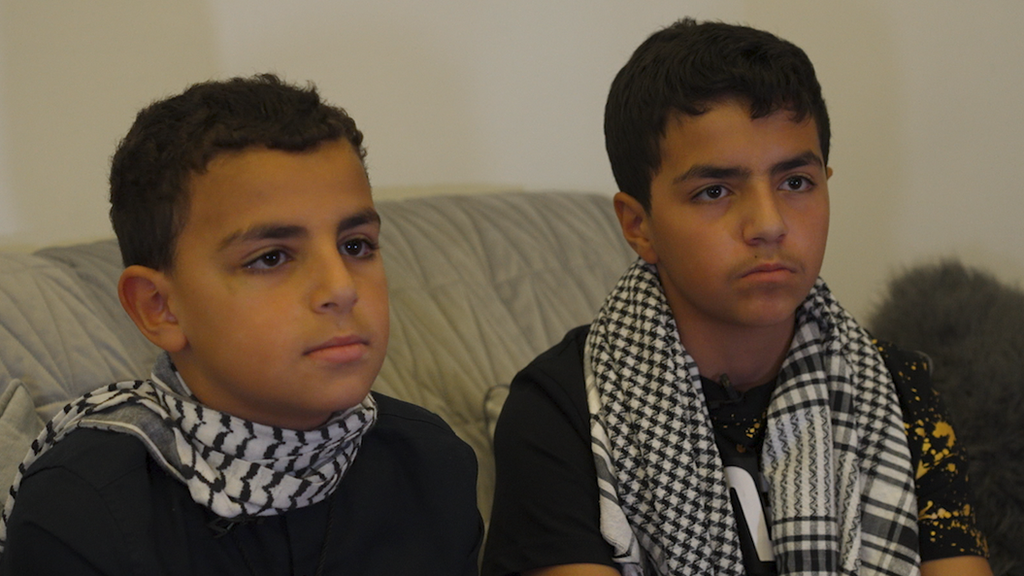
Taha and Yusuf told Newsround about their concerns during the ongoing conflict
Taha says there has been some relief because "at least my mum's heard their voices," and despite the phone line being described as "glitchy" the boys' parents have been able to keep in touch with family.
"They were doing alright but they were all very tired and they were all very worried and scared," Yusuf added.
Hundreds of thousands of people living in northern Gaza have left their homes following an order from the Israeli military to evacuate the region.
The majority of those who have left have travelled to the southern city of Khan Younis seeking shelter and food.
The origins of the conflict between Israel and Palestinians go back at least 100 years.
Britain took control of an area called Palestine after World War One. There was a Jewish minority and Arab majority living there at the time.
Over the next few decades many more Jewish people arrived, with many of them seeking a homeland after many Jews were forced to flee Europe during the Holocaust in World War Two.
In 1947, the United Nations voted for Palestine to be split in two between a Jewish state and an Arab state. Jewish leaders agreed to the plan but the Arab side did not.
Britain could not solve the differences and left in 1948. Jewish leaders then declared the creation of Israel.
Palestinians objected to this new state, and a war followed. Neighbouring Arab countries invaded Israel.
By the time the fighting stopped Israel controlled most of the territory, but Gaza was controlled by Egypt and another area of Palestine, the West Bank, by Jordan. These two areas contained thousands of Palestinians who fled or were forced out of their homes in what was now the new Jewish state.
Then, in 1967, after another war, Israel occupied Gaza and the West Bank, and Israeli troops stayed there for years.
Israel left Gaza in 2005 but soon after, a militant Palestinian group called Hamas won elections and took control there.
Israel controls the air space over Gaza and its shoreline and restricts who and what goods are allowed in and out. Hamas refuses to recognise Israel as a country and wants Palestinians to be able to return to their old homes - and has repeatedly used violence to try to achieve its aims.
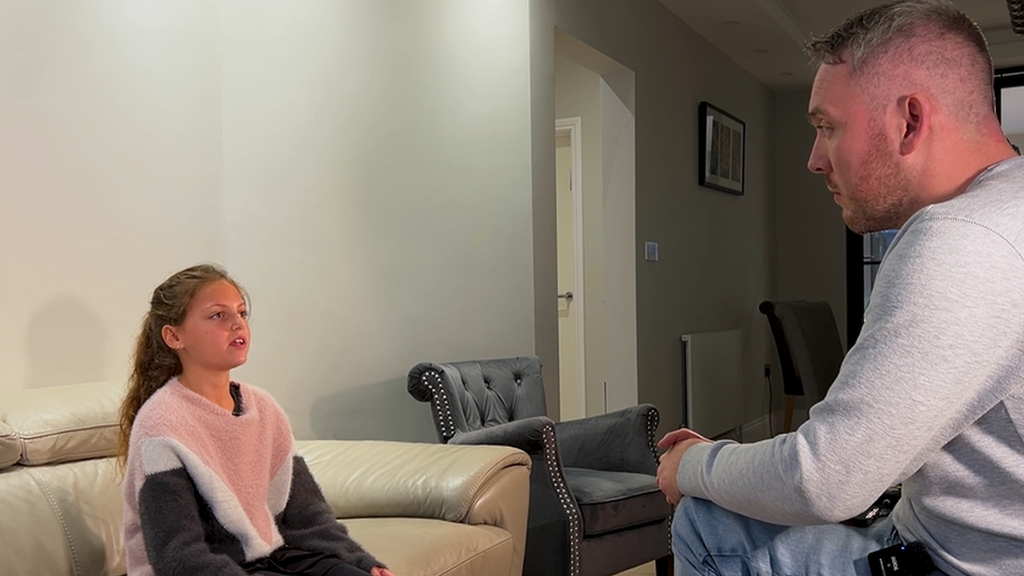
Tal hopes that the war will end and she can eventually go back to her country
Following the increase in violence between Palestinian militants and Israel, there has been a reported rise in antisemitic incidents in the UK - behaviour targeting Jewish people which, depending on its severity, can be classed as hate crime.
It meant that some Jewish schools decided to close for a day last week over safety concerns.
Tal says although she personally feels safe, she has been aware of antisemitic incidents, which she says are a bit worrying: "I think a few people here have been acting up a bit and not being very nice about the war," she says.
Taha and Yusuf are worried about how people might act towards them if they know they have Palestinian relatives in Gaza.
"I'm a bit nervous and scared because you never know if someone is on one side or the other," says Taha.
"If they know [we have family in Gaza] they could either be angry with you or happy with you."
During the interviews, Martin asked Tal, Taha and Yusuf what they hope will happen now.
Taha says he would like people to be treated 'equally' adding that he wants his family and other Palestinians in Gaza to "be free and have rights and electricity and water and food".
Asked the same question, Tal hopes "that the war eventually ends" and says she wants to "still be able to go back to my country".
- Published18 December 2023
